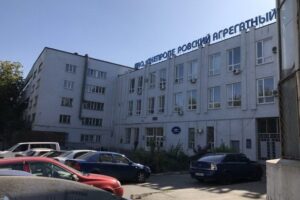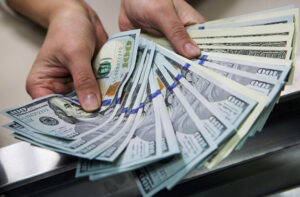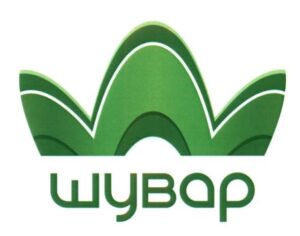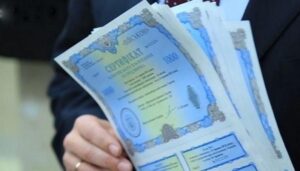
In January-August of this year, the Zaporizhstal steel plant in Zaporizhia increased its rolled steel output by 11.9% compared to the same period last year, from 1 million 644.4 thousand tons to 1 million 839.3 thousand tons.
According to the plant’s press release on Wednesday, steel production for the period amounted to 2 million 105.5 thousand tons (in January-August 2024 – 1 million 973.7 thousand tons), and 2 million 339.2 thousand tons of pig iron (2.049 million tons).
In August, Zaporizhstal produced 310.8 thousand tons of pig iron, 277.3 thousand tons of steel, shipped 245.9 thousand tons of rolled products, compared to 309 thousand tons of pig iron, 264 thousand tons of steel, and 231.2 thousand tons of rolled products in the previous month.
As reported, in 2024, Zaporizhstal increased its rolled steel output by 18.1% compared to 2023, to 2 million 426.7 thousand tons from 2 million 54.7 thousand tons, and steel output by 17.2%, to 2 million 890.8 thousand tons, and pig iron by 14.2%, to 3 million 106.3 thousand tons.
In 2023, Zaporizhstal increased its rolled steel production by 57.2% compared to 2022, to 2 million 54.7 thousand tons, steel by 65.4%, to 2 million 466.9 thousand tons, and pig iron by 35.3%, to 2 million 718.9 thousand tons.
Zaporizhstal is one of Ukraine’s largest industrial enterprises, whose products are in high demand among consumers both in the domestic market and in many countries around the world.
Zaporizhstal is a joint venture of the Metinvest Group, whose main shareholders are System Capital Management (71.24%) and Smart Steel Limited (23.76%). Metinvest Holding LLC is the managing company of the Metinvest Group.

JSC “Dnipropetrovsk Aggregate Plant” (DAP, Dnipro) ended the first half of this year with a net profit of UAH 44.76 million, which is 18.1% more than in the same period of 2024.
According to the company’s financial report published on its website, net income increased by 59.6% to UAH 256.35 million.
The plant received UAH 60.31 million in operating profit (up 14.4%), and gross profit increased by 12.8% to UAH 92.69 million.
DAZ also published its financial report for the first quarter of this year, according to which net profit increased by 20% in January-March 2024, with net income growing by 41% to UAH 96.48 million.
Thus, in the second quarter of 2025, DAZ increased its net profit by 17.1% compared to April-June 2024, to UAH 29.22 million, and net income by 73.5%, to UAH 159.87 million.
DAZ notes that the main buyers of its products in the first half of the year were PP Lyon and NVO Aviagregat.
“Due to the difficult situation in connection with Russia’s occupation of territories, the company continued to experience a decline in the production of mining equipment during the reporting period (almost three times compared to the same period in 2024). However, the production of special-purpose products continued to increase, which made it possible to maintain positions and obtain a net profit,” the plant’s interim management report says.
DAZ is a company with many years of experience in the production of aviation equipment, as well as hydraulic equipment for mines and general-purpose products (fuel and other liquid pumps).
According to the company, in 2024, it reduced its net profit by 38.4% compared to 2023, to UAH 70.05 million, while its revenue fell by 20.8%, to UAH 277.5 million.
As reported, by decision of the shareholders, the net profit received in 2023 and 2024 will be directed towards the development of production.

The National Bank continues to prepare for the gradual liberalization of the currency market, but such steps will be as cautious and consistent as possible. This was stated by First Deputy Head of the NBU Serhiy
Mykolaychuk in an interview with the Interfax-Ukraine news agency.
He stressed that no sudden moves should be expected: “Our goal is to maintain confidence in the hryvnia and prevent destabilization. Liberalization will depend on macroeconomic conditions and the stability of the balance of payments.”

Shuvar Agricultural Products Market LLC (Shuvar, Lviv) will pay shareholders UAH 5.6 million in dividends based on its performance in 2024 and will pay them out by October 31, 2025.
As reported in the information disclosure system of the National Securities and Stock Market Commission (NSSMC), the relevant decision was made by the general meeting of the company’s participants at a meeting on September 1 of this year.
According to the minutes of the general meeting, dividends will be paid to persons who were members of the company on the date of the decision to pay dividends, in proportion to the size of their shares, on a monthly basis, starting in September 2025 and ending in October 2025. The total amount in September 2025, which is subject to accrual and payment to LLC participants, is UAH 2.8 million. The same amount will be paid to them in October this year.
Shuvar is the largest wholesale market for agricultural products in Lviv and Western Ukraine. The total area of the market is over 20 hectares. It is a member of the World Organization of Wholesale Markets. During the year, an average of 1.3 million cars visit the market. The market is part of the Shuvar group of companies, which is managed by Shuvar LLC.
According to data from Opendatabot, in 2024, Shuvar reduced its revenue by 5.6% to UAH 277.29 million and increased its net profit by 13.2% to UAH 91.23 million. Its debt obligations increased 2.6 times to UAH 143.92 million, assets increased by 25.8% to UAH 785.19 million, and the number of employees increased by 7 to 135.

During the summer of 2025, Ukrzaliznytsia (UZ) transported 1.6% more passengers than last summer – 8.07 million, with the number of passengers transported in August reaching 2 million 845 thousand people.
According to the company’s Facebook post on Monday, twice as many military personnel and their families were transported through the special reserve – 130,600.
During the summer of 2025, 1.6 times more children’s groups were also transported: 328,000 children with their parents on group applications and 16,243 children with their parents traveled in children’s cars.
“From June to August, Ukrzaliznytsia transported 3,895 passengers to safety from Sumy, Kherson, Dnipropetrovsk, Donetsk, and Zaporizhzhia regions,” Ukrzaliznytsia added.
The company emphasized that despite all the challenges this summer—a critical shortage of cars lost due to shelling and natural aging, a surge in demand during the peak summer season — 39 additional trains and groups of carriages were assigned, which allowed for the transportation of an additional 627,000 passengers and reduced the load on regular routes.
Earlier, Ukrzaliznytsia transported 639,700 passengers between August 18 and 24, which is 0.8% less than a week ago. According to statistics, the total volume of transportation still remained higher than last year: during the reporting week, the excess was 3.9%, or 23,700 passengers. The average number of passengers carried per car from August 18 to 24 was 467, which is 6.4% more than in the same period in 2024.
As reported, in the first half of 2025, Ukrzaliznytsia increased passenger traffic by 1.2% compared to the first half of 2024, to 13.52 million. This is 23% more than in January-June 2023, as previously reported by Ukrzaliznytsia CEO Oleksandr Pertsovskyi on Facebook.

The National Bank of Ukraine considers the issuance of military domestic bonds (OVDPs) to be the main and most effective instrument for covering the budget deficit in wartime. This was announced by First Deputy
Head of the NBU Serhiy Nikolaychuk in an interview with the Interfax-Ukraine news agency.
According to him, high demand from banks and the population allows the Ministry of Finance to successfully place securities while maintaining macrofinancial stability. “OVDPs remain a safe and most transparent way to finance the state’s needs,” he said.